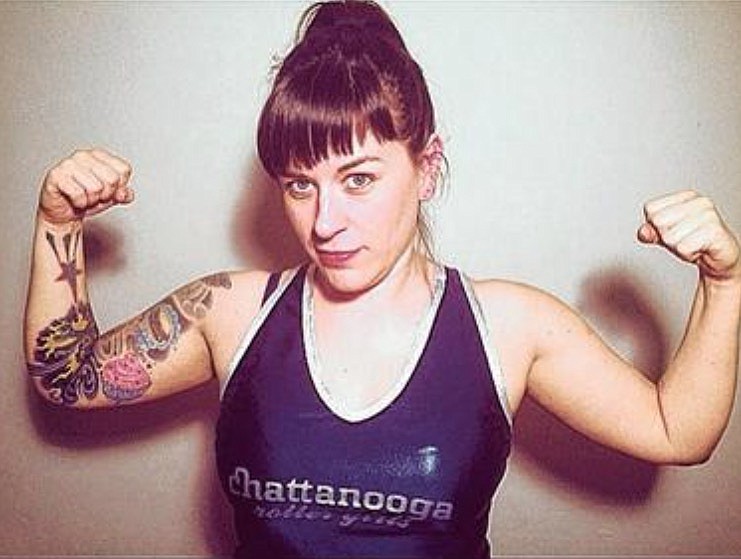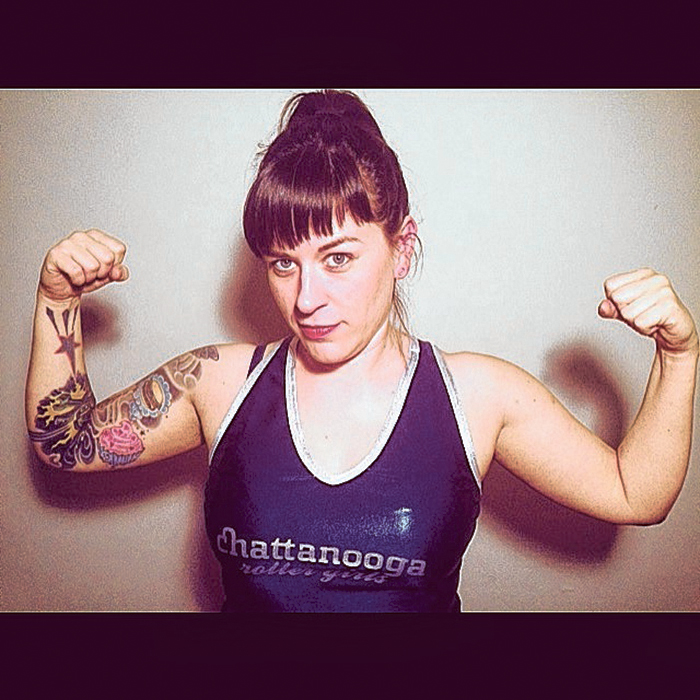Ah, roller derby -- I remember it well.
It was 1968, and my parents had just purchased our first color television, a 25-inch Magnavox console that seemed to convert every color to an earth tone.
Sometimes on Saturdays I would sneak into the living room, lie prone with my elbows on our brown shag carpet and watch roller derby. The only '60s-era team I remember is the San Francisco Bay Bombers, a collection of women who looked like they could chew up railroad spikes and spit out nails.
As the female skaters circled on a banked track, they slammed together like NASCAR drivers swapping paint at Bristol. I remember hip checks, and elbows and ponytails flogging the air like a bunch of crazed Hell's Angels swinging chains.
There was something primal and wild about roller derby, and it was riveting to a 10-year-old boy growing up in Middle Tennessee, whose daily encounters with women included mainly soft-shoed schoolteachers and my mom's Sunday school friends. (I did, ironically, attend an elementary school that had as teachers both a Mrs. Savage and a Mrs. Outlaw, who presumably could have both joined the roller derby without changing their names.)
That San Francisco, Calif., must be a pretty tough place, I reasoned, if a game like this could break out at a skating rink. Among LADIES!
It turns out, I had tuned in at the peak of the 20th-century roller derby phenomenon. According to various online histories of roller derby, television viewing of the league peaked in the late 1960s, with up to 15 million people a week checking out the action. Almost 20,000 fans gathered for a roller derby bout in 1970 at New York's Madison Square Garden, according to the book, "The Life and Times of Roller Derby."
The 20th century, however, was a turbulent time for roller derby, whose popularity ebbed and flowed across decades. It almost died in the 1970s, when audiences grew tired of leagues that tried to use theatrics -- think professional wrestling -- to keep fans interested.
I was vaguely aware that roller derby had made a 21st-century comeback, and that Chattanooga had a team, but I had never met a player until Paris Killton, a member of the Chattanooga Roller Girls, dropped by the newsroom one recent day to visit.
Killton, you should know, is joined on the Roller Girls by such bruisers as Kateness EverMean, Shank Williams, Machine Gun Red and Luna Shovegood. (I am guessing these are not their given names.) The Roller Girls were formed in 2008 and play their home games on a flat oval at the Trade Center downtown. Their opponents are such squads as the Music City Brawl Stars and the Gainesville (Fla.) Roller Rebels.
Teams are divided into brawny blockers and fleet-footed jammers, and points are scored by lapping the opposition -- a nod to the sport's Great Depression roots as a showcase for endurance skaters. Early derbies were said to be tag-team affairs that lasted for days and sometimes covered the equivalent of hundreds of miles.
Paris Killton, I learned, is really Tabitha Esther, a genial, 33-year-old transplanted Californian who moved here last fall and works for a company that does environmental cleanup work on old gas stations.
A veteran of banked-track roller derby in California, she says the Chattanooga Roller Girls give her a good social outlet. She likes the physical part, too -- the sport has become much more athletic and less theatrical in recent years. The made-up names are vestiges of the sport's showbiz past.
"You can go to almost any city in America and there's a roller derby league set up," says Esther, noting that the players -- including a number of mommies -- still enjoy their tough-sounding names as a form of escapism.
"I can leave work as Tabitha," she says, "and play games as Paris Killton."
Esther says the Roller Girls practice a couple of times a week at a local roller rink and recreation center, and they're training for the coming season, which begins Feb. 7 with a bout in Nashville against the Brawl Stars. The first home bout is a rematch with Nashville on May 16. The team basically plays a game a month through October.
Scores can run into the hundreds -- a typical late-game tally can run 219 to 157 -- which makes roller derby scoring a bit like pinball.
The Roller Girls compete in the Women's Flat Track Derby Association, which includes 302 clubs in different divisions.
There's something both campy and fun about roller derby that is clearly still relevant in the 21st century. The Hard Knox Roller Girls, in Knoxville, for example, have a team logo fashioned after a set of brass knuckles, with the Sunsphere as the middle finger.
Nice.
Paris, er, Tabitha, requests your presence at a Roller Girls bout this year.
All hail the home team.
Contact Mark Kennedy at mkennedy@timesfreepress.com or 423-757-6645. Follow him on Twitter @TFPCOLUMNIST. Subscribe to his Facebook updates at www.facebook.com/mkennedycolumnist.


